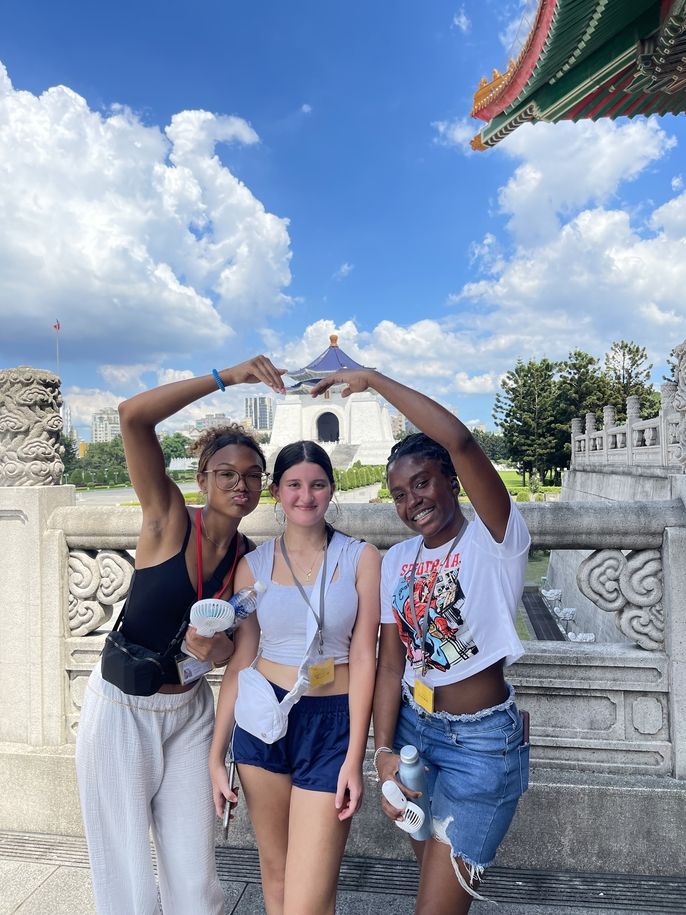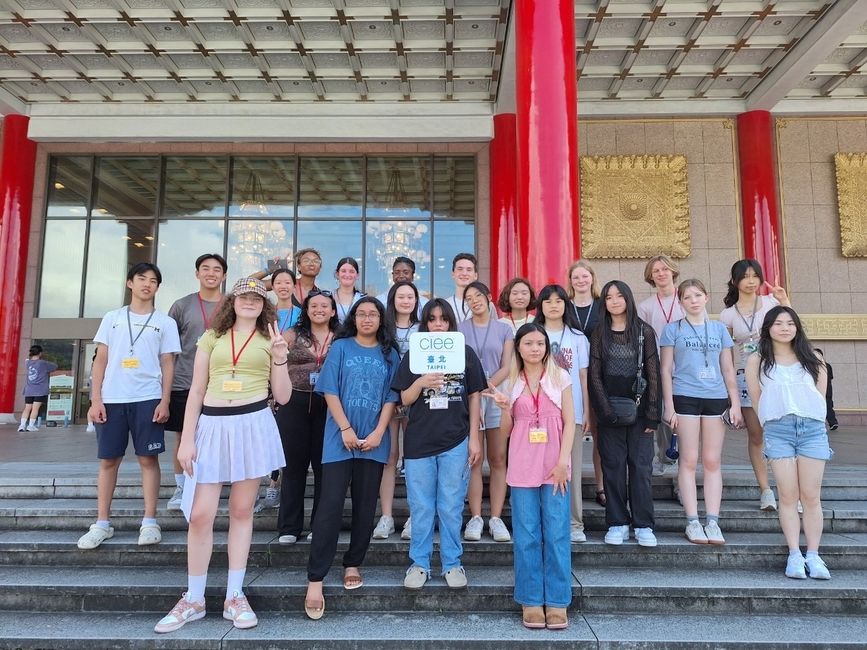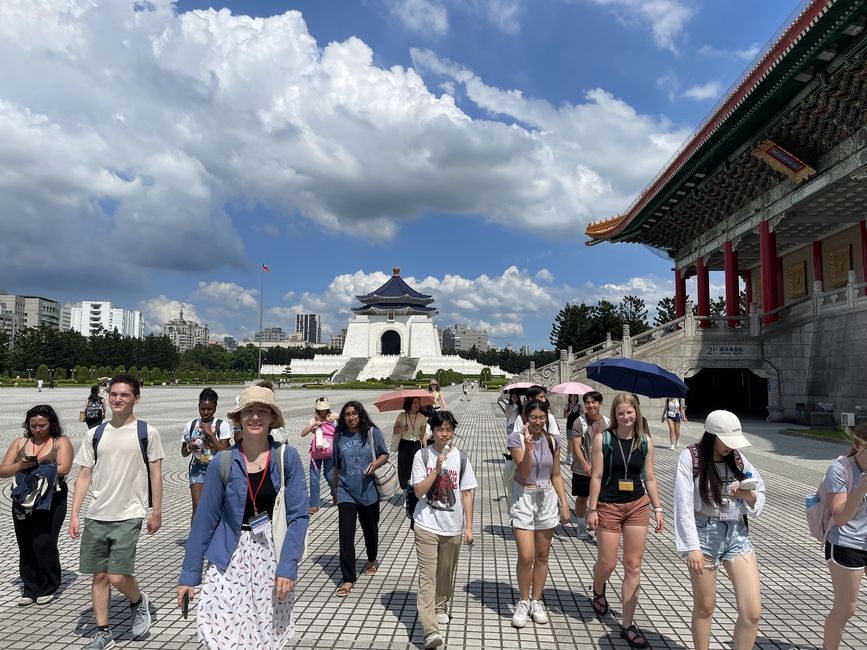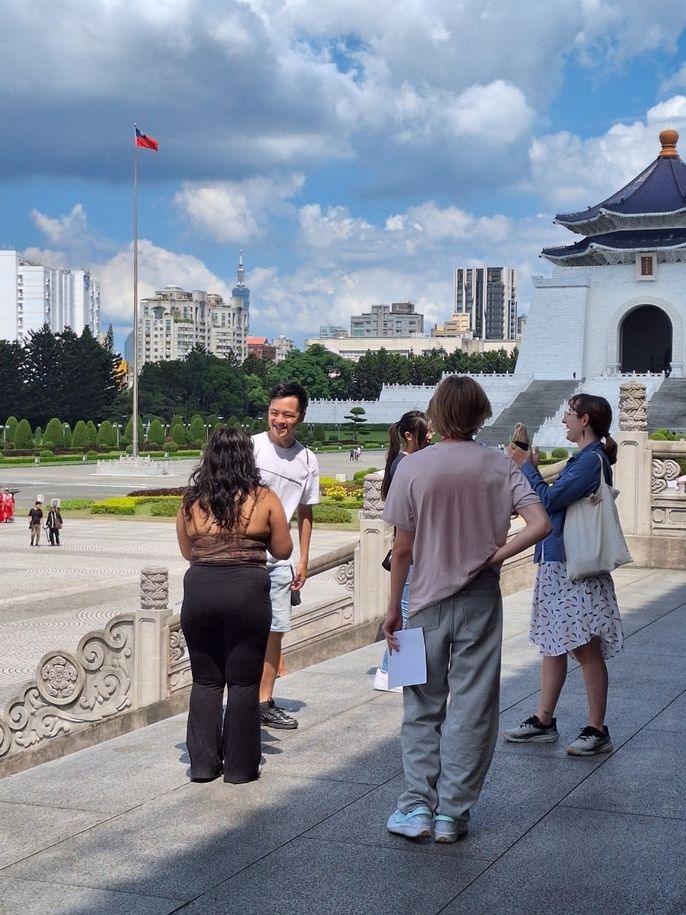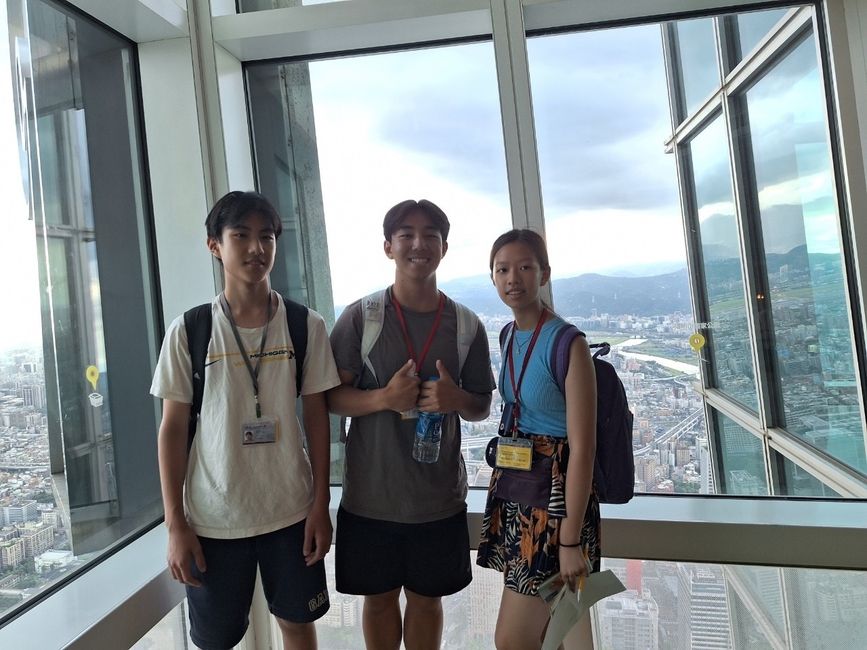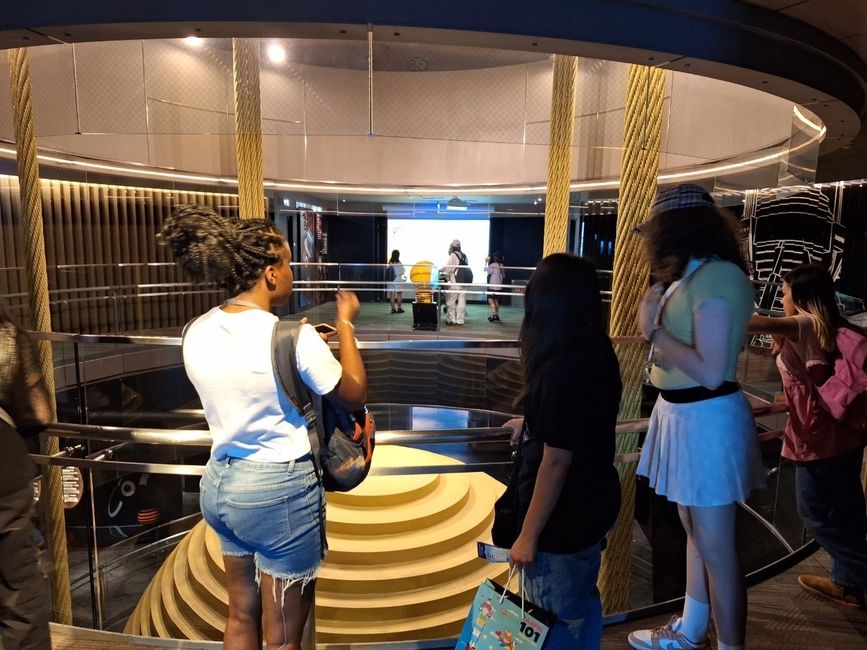A Cultural Journey Through Taipei: Chiang Kai-shek Memorial Hall and Taipei 101
Today, we took a group of American students on a cultural exploration journey in Taiwan. While the primary goal is for them to learn Chinese, we also want them to gain a deep understanding of Taiwan's history and culture. Therefore, we arranged a special cultural activity, taking them to visit two of Taipei's iconic landmarks: Chiang Kai-shek Memorial Hall and Taipei 101.
First, we arrived at Chiang Kai-shek Memorial Hall. Located in the heart of Taipei, completed in 1980, it is one of Taiwan's most visited sites. As we stepped into the square of the memorial hall, the students were immediately captivated by the grandeur and solemn atmosphere of the place.
The design of the memorial hall integrates traditional Chinese architectural elements with modern design. The white marble exterior glistens under the sun, and the blue glazed tile roof symbolizes the vast sky. The entire memorial hall is set within a lush green park, surrounded by beautiful gardens and lakes, creating a harmonious scene.
The students wandered freely in the square, absorbing the tranquility and solemnity of the environment. Although we did not enter the memorial hall this time, just being in the outdoor space allowed them to feel the profound historical ambiance. The towering archway of the memorial hall loomed before us, its imposing presence leaving everyone in awe.
Around the memorial hall, many locals and tourists were relaxing and taking photos. This site is an integral part of daily life for Taipei residents and an essential window for foreign visitors to understand Taiwanese culture. Our students eagerly took out their cameras, capturing the beautiful scenery and taking group photos. Some even lay on the ground to capture different angles of the majestic memorial hall.
At Liberty Square in front of the memorial hall, the students not only appreciated the magnificent architecture but also had the opportunity to see the National Theater and National Concert Hall on either side. These buildings also hold significant cultural value, frequently hosting various artistic performances and concerts, making them a vital part of Taiwan's cultural life. The students paused here, learning about Taiwan's rich artistic culture and gaining a deeper appreciation for its diverse cultural landscape.
After concluding our visit to Chiang Kai-shek Memorial Hall, we headed to Taipei 101. This skyscraper is one of Taipei's most iconic landmarks and a renowned architectural marvel worldwide. Standing at 508 meters tall with 101 floors, Taipei 101 was once the tallest building in the world. The students were immediately impressed by its towering presence.
Upon entering Taipei 101, we took the high-speed elevator to the observatory. This elevator, one of the fastest in the world, took us from the 5th floor to the 89th-floor observatory in just about 37 seconds. From the observatory, we enjoyed a panoramic view of Taipei City. The clear weather allowed us to see distant mountains and coastlines, and the students were mesmerized by the breathtaking scenery.
At the observatory, we also visited Taipei 101's tuned mass damper. This massive 660-ton sphere, located between the 87th and 92nd floors, reduces the building's sway during earthquakes and strong winds. The students were highly curious about this engineering marvel, eagerly asking about its mechanics and effectiveness.
Inside Taipei 101, we explored several high-end shops and restaurants. We took the opportunity to show the students some specialty stores and treat them to authentic Taiwanese cuisine. These experiences allowed the students not only to visit the architecture but also to deeply appreciate the prosperity and vibrancy of modern urban Taiwan.
This cultural tour of Chiang Kai-shek Memorial Hall and Taipei 101 not only enhanced the students' understanding of Taiwan's history and modernization but also allowed them to experience Taiwan's diverse culture and unique charm firsthand. Through such activities, we hope the students will gain a deeper understanding of the humanistic spirit of this land and maintain their enthusiasm for cultural exploration in their future studies.
Related Posts
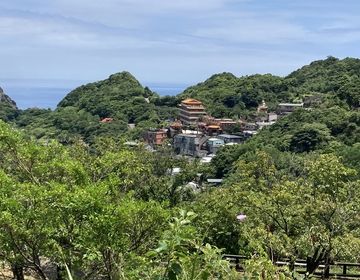
How I Studied Abroad as a Freshman in High School
Thinking about what to do the summer after your freshman year? Check out how one of our alumni studied abroad in Taipei, Taiwan at such a young age and how you can too!

Exploring the Rich Culture of Tainan: An American Students' Journey
In a rapidly globalizing world, experiencing diverse cultures has become an essential part of education. For a group of American students, a two-day and one-night trip to Tainan, Taiwan, offered... keep reading
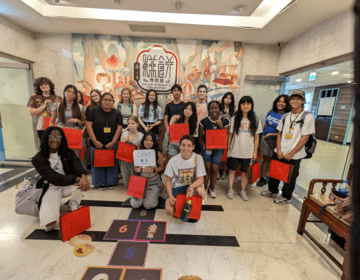
Learning Made Sweet and Fun: Baking the Famous Pineapple Cake
This afternoon's cultural activity was one of my favorites! We enjoyed a refreshing break from the heat, learning how to bake pineapple cake. The students had a blast baking and... keep reading
